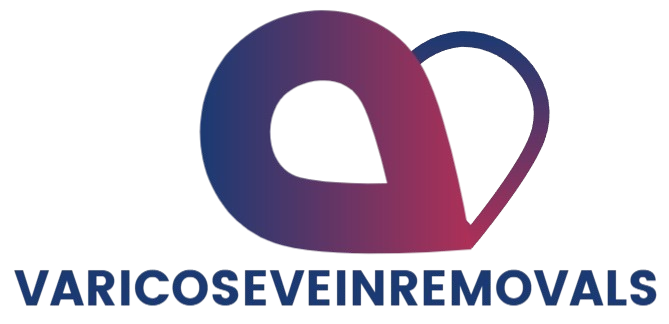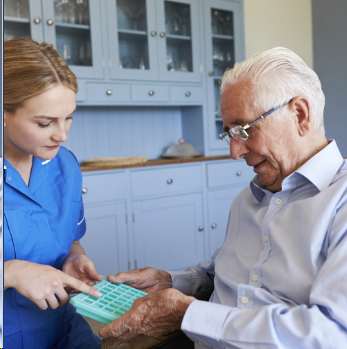Aging in place is more than a trend—it’s a reflection of dignity, independence, and comfort. For seniors and individuals needing daily assistance, remaining at home brings peace of mind, familiar surroundings, and a deep sense of control over their lives. But independence doesn’t mean going it alone. Personalized home care services bridge the gap between autonomy and essential health support. Among these, one often overlooked yet profoundly impactful service is medication reminders.
Medication Reminders: A Lifeline to Stability
For older adults, especially those managing chronic conditions, sticking to prescribed medication schedules is vital. A missed dose or taking the wrong medication at the wrong time can quickly escalate into a health crisis. In places like Scottsdale, Arizona, where many families rely on home care services, consistent medication reminders have proven to be one of the most effective ways to prevent unnecessary hospital visits and promote wellness at home.
Medication reminders are more than simple nudges—they’re safeguards. Home caregivers not only prompt seniors to take their medications but also monitor for side effects, changes in behavior, or confusion, allowing early intervention when something seems off. This kind of proactive attention is invaluable in preserving a senior’s health and peace of mind.
Encouraging Independence Through Gentle Support
The beauty of effective home care lies in its balance: supporting seniors without stripping away their independence. For many, managing their own medications is a meaningful way to stay involved in their health. But complex regimens, memory challenges, or vision issues can turn daily medication into a stressful task.
That’s where tailored reminders come in. Whether it’s a friendly verbal cue from a caregiver, a color-coded pill organizer, or a digital notification on a smartphone, these reminders foster a sense of routine and empowerment. Seniors maintain control while knowing they have a safety net if something goes awry.
Moreover, this approach provides emotional relief to families. Knowing their loved ones are getting the right medications at the right time—without added stress—brings a sense of reassurance, especially when they can’t be there in person every day.
One Size Doesn’t Fit All: Customized Medication Reminder Methods
Not every senior requires the same level or type of reminder. A good home care provider recognizes this and adjusts accordingly. Here are several commonly used strategies:
- Digital Alerts: Ideal for tech-savvy seniors, these include medication apps, phone alarms, or even smartwatches. They offer scheduled prompts and often allow caregivers or family members to track compliance remotely.
- Pill Organizers: Tried and true, these visual aids come with compartments labeled by day and time. They help seniors see whether a dose was taken and make managing multiple prescriptions more straightforward.
- Visual Charts and Lists: For those who prefer paper-based reminders, a medication chart taped to the fridge or a bedside checklist can be surprisingly effective.
- Caregiver-Delivered Reminders: When memory or cognitive decline is an issue, in-person or phone-based reminders from a caregiver ensure no dose is missed, no matter the complexity of the regimen.
The key is personalization. What works for one senior may not work for another, and the best care adapts to fit.
The Health Payoff: Why Medication Adherence Matters
Following a prescribed medication schedule isn’t just about following doctor’s orders—it directly affects quality of life. Here’s how:
- Stable Chronic Disease Management: Conditions like diabetes, heart disease, and arthritis are much more manageable when medications are taken consistently.
- Reduced Hospital Admissions: Medication errors are one of the leading causes of preventable hospital visits among older adults. Reminders significantly reduce this risk.
- Cognitive Support: Certain medications support brain health in aging adults. Skipping doses can impair their effectiveness, while regular intake can help maintain cognitive function.
- Lower Risk of Adverse Drug Interactions: Organized medication routines ensure drugs are taken safely, preventing harmful combinations or overdoses.
Implementing a Reminder System at Home
Setting up a medication reminder routine doesn’t have to be complicated. Here are some simple, actionable steps:
- Start with a Professional Assessment: A qualified caregiver can evaluate a senior’s physical and cognitive abilities to determine the best method of reminders.
- Invest in a Good Pill Organizer: Choose one with easy-to-read labels and compartments for morning, noon, and night.
- Incorporate Technology: If appropriate, use alarms or mobile apps to set discreet reminders.
- Create a Visible Schedule: A written chart on the refrigerator or bathroom mirror can reinforce routines.
- Schedule Consistent Caregiver Support: Daily check-ins from a caregiver—either in-person or by phone—can provide essential consistency and emotional support.
These steps aren’t just about medication—they create structure, reduce confusion, and build confidence in daily life.
Integrated Care, Not Isolated Tasks
The most successful home care strategies weave medication reminders into a broader care routine. Caregivers often combine reminders with meal preparation, hygiene routines, or even light exercise. This holistic approach turns medication time into a moment of connection and continuity, not just another item on the to-do list.
In assisted living or full-time home care settings, medication reminders become part of a lifestyle—seamlessly integrated into the flow of each day, offering reassurance and reliability.
A Small Step Toward Big Gains
In the grand scheme of senior care, medication reminders might seem like a minor detail. But for many older adults, this simple daily act can make the difference between independence and instability, confidence and confusion, health and hospitalization.
It’s not just about remembering pills. It’s about remembering that small steps—taken consistently—can lead to big gains in health, happiness, and quality of life.



